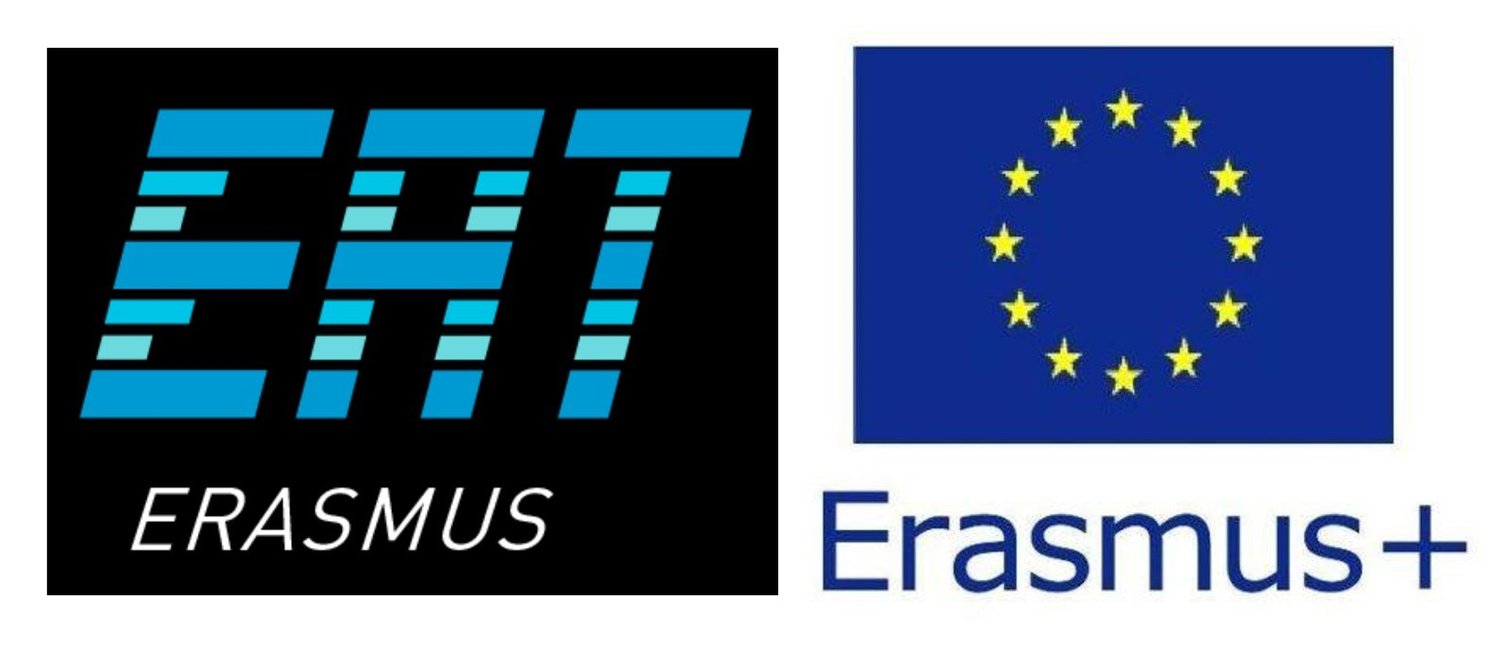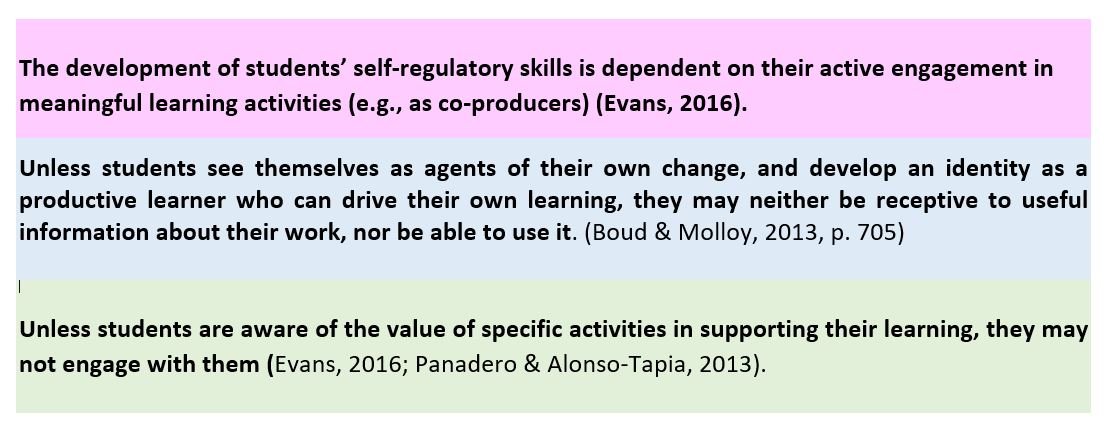2.1 Promoting Student Engagement
How can we use an understanding of self-regulation to inform assessment practice in higher education and how can assessment design promote self-regulation?
Greater emphasis should be placed on assessment designs that promote student engagement with all dimensions of the assessment process as part of ‘knowing' to’
(Sadler, 2013)
“To be an agent is to influence intentionally one’s functioning and life circumstances”
(Bandura, 2006, p. 164).
Engaging students centrally in assessment practices is essential in promoting SRL.
Crucially, it is the quality of student engagement that matters (Evans et al., 2015). Engagement provides the possibility for students to self-regulate and to take ownership of assessment and in doing so, to develop high level self-regulatory skills. Students’ perceptions of their engagement in assessment impacts outcomes, however the relationship of student engagement to outcomes is complex and is mediated by many factors (Evans et al., 2019)
Engagement is complex and influenced by many individual and contextual variables. Understanding the barriers to, and facilitators of, self-regulatory assessment practices is important in enabling teams (educators and students) to move forward together. Students’ perceptions of their engagement in assessment can impact how well they do. However, the relationship between engagement and performance is complex and mediated by a number of individual and contextual variables (Evans et al., 2015).
Agentic engagement in summary is about student-initiated, proactive, intentional, collaborative, and constructive action, to support their learning, and how as educators we promote this (Reeve, 2013). The quality of engagement matters. How we engage with students and what knowledge and skills we promote in partnership with them. Student and educator beliefs about their respective roles within assessment are instrumental in impacting the quality of student engagement within assessment (Waring & Evans, 2015).



